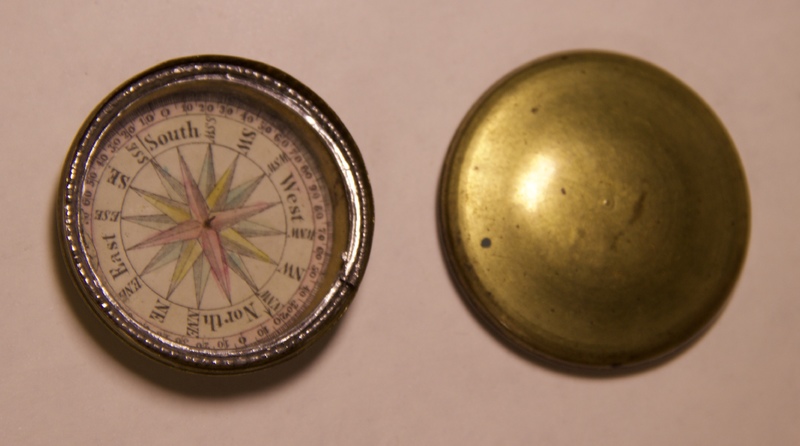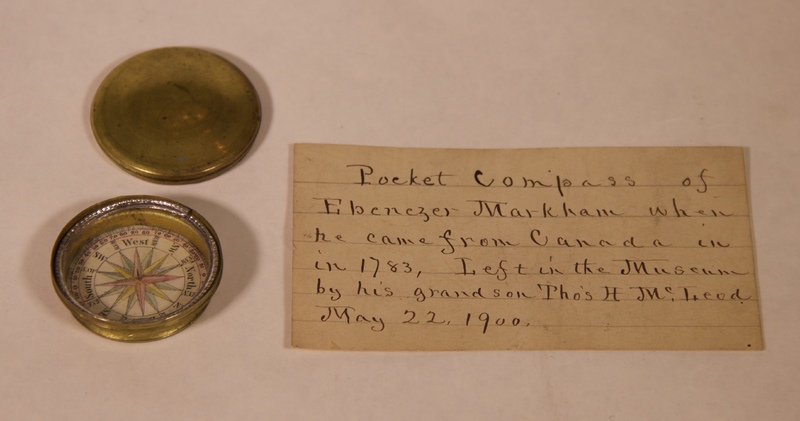Introduction
This is a pocket compass that once belonged to Ebenezer Markham, who came from Canada in 1783. The compass eventually made its way to the Henry Sheldon Museum when Ebenezer’s grandson, Tho’s, gave it to Sheldon in 1900. The physical features of the compass itself are fairly standard, sporting a classic multicolored face broken up into four cardinal points, four half cardinal points, and eight false points (see picture). The compass appears to be handmade, as seen by the slightly offset numbers and the time period doesn’t fit the age of mass production. Though the compass is slightly discolored by time, it looks well preserved, despite missing the needle. In addition, the compass comes with a dull bronze cap and a note from Henry Sheldon’s note that reads, “Pocket Compass of Ebenezer Markham when he came from Canada in 1783. Left in the Museum by his grandson, Tho’s H. Jne. I eod May 22, 1900”.
Though the physical compass is fascinating, the story behind it is even more intriguing. Who was Ebenezer Markham? Why did he come from Canada in 1783? How did his grandson meet Henry Sheldon? Why did his grandson leave Sheldon the compass? These are just a few questions that spring from such a simple item, and the best part is, there aren’t any easy answers, leaving us to ponder possibilities for ourselves. The local Middlebury newspaper sheds a little light on the Markham family, the only information being Ebenezer’s birth and death (born in 1749 and died in 1813) (“Middlebury Registrar”). This seemingly innocuous detail raises even more questions about Ebenezer's life. Did he flee Middlebury and go to Canada to escape the Revolutionary war and come back for the end of it? Was he involved in Canadian business that prohibited him from fighting in America? Despite the vast resources of the Internet, we in the 21st century don’t know much about the item’s or its owner’s backstory and what we can piece together is mostly guesswork. But maybe, with a little imagination and hindsight, the compass might point you in the right direction.

